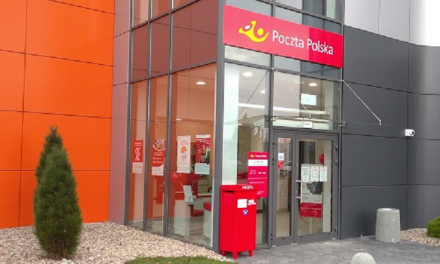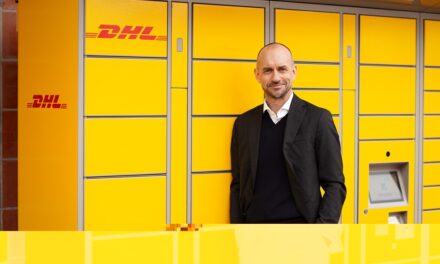
Deutsche Post DHL boosted by 11.4% revenue jump
Deutsche Post DHL described its financial performance as “strong” for 2010, as Group revenue soared 11.4% to EUR 51.5bn. The company “significantly increased its revenues” and “strongly improved its profitability”.
This was achieved despite a slight drop in revenue in the MAIL division, caused in part by “a regulatory change in value-added tax that took effect in mid-2010”.
However, this was more than offset by “vigorous top-line growth in all DHL divisions”.
DHL divisions were boosted by the acquisition of new customers, whilst positive currency effects also contributed to the improvement.
Overall, Group revenues climbed by 11.4% to EUR 51.5bn. Thanks to margin improvements at DHL, the increase of the Group’s operating profit was “substantially higher”.
Underlying EBIT stood at EUR 2.2bn, 50% higher than the previous year’s level.
Deutsche Post DHL also exceeded the “upper end of the upgraded guidance for the company’s operating earnings by more than EUR 100m”.
With an operating profit of EUR 1.45bn (2009: EUR 378m), for the first time the DHL divisions contributed more to overall earnings than the MAIL division, which generated an underlying EBIT of EUR 1.15bn in 2010 (2009: EUR 1.4bn).
In 2009, net profit totaled EUR 644m. In 2010, it had climbed to over EUR 2.5bn. This represents a rise in earnings per share from EUR 0.53 in 2009 to EUR 2.10 in 2010.
A statement confirmed that the Group had comfortably exceeded its targets:
“Originally, the Group had forecast that underlying EBIT would rise to between EUR 1.6bn and EUR 1.9bn.
“In combination with positive effects from the sale of Postbank, the efficiency improvements also produced a fourfold increase in the company’s net profit to EUR 2.5bn in financial year 2010.”
Frank Appel, CEO of Deutsche Post DHL, said: “Our strong performance in 2010 clearly demonstrates that we positioned ourselves at an early stage to be fit for the economic upswing and that our Strategy 2015 is increasingly bearing fruit.
“This past year was an important milestone on our way to sustainably increasing the company’s earnings strength.”
Looking towards the future, Deutsche Post DHL expects the recovering economy to further boost the company’s financial standing in 2011.
“Against this background, Deutsche Post DHL expects an EBIT of between EUR 2.2bn and EUR 2.4bn. While the MAIL division is expected to contribute between EUR 1bn and EUR 1.1bn to this figure, earnings at DHL should increase to between EUR 1.6bn and EUR 1.7bn. Corporate Center/Other expenditures are forecasted to total around EUR 400m” a statement said.
The Group also affirmed that the “positive earnings trends will continue in future years – assuming a further recovery of the global economy”.
Despite of the fall in mail volumes, earnings in the MAIL division are to be stabilised at around EUR 1bn. At the same time, the operating profit at DHL should climb by 13% to 15% on average each year until 2015.
Appel added: “We are focusing on growth in both revenues and earnings. Our two strong pillars provide an excellent starting point for this.
“We have built the foundation to stabilise the profitability of the MAIL division and have just begun to tap the growth potential of DHL.
“We will use this strong basis to further expand our leading market positions and significantly increase profitability.”
As restructuring expenses were considerably reduced as planned, the rise in reported EBIT was even more pronounced. In 2010, it reached EUR 1.8bn, more than EUR 1.6bn above the previous year’s level of EUR 231m.
Based on the strong results, the company will propose a dividend of EUR 0.65 per share at May’s AGM – a rise of EUR 0.05.
“Based on the consolidated net profit adjusted for non-recurring items this dividend proposal reflects a payout ratio of 59%, the company said.
Deutsche Post DHL’s fourth quarter performance contributed towards the “strong” annual results. Revenue increased 12% to EUR 13.9bn. Moreover, the MAIL division also contributed to increased revenue through the parcel business. However, the division’s operating profit declined. Underlying EBIT for the quarter rose by 12.7%, whilst there was a rise in consolidated net profit to EUR 487m.
The Group’s capital expenditure in 2010 totaled EUR 1.3bn, above the previous year’s level of EUR 1.2bn.
A statement said: “The investments were in areas such as new technologies and products in the MAIL division that range from state-of-the-art letter-sorting equipment, and new camera and scanning technology in the parcel centers to the E-Postbrief introduced in mid-2010, as well as the online-shopping portal “Mein Paket.de”.
“The foundation for future growth in the DHL divisions was also strengthened by investments in aircraft, hub warehouses and other property, plant and equipment.
“For 2011, the Group expects capital expenditure will rise to up to EUR 1.6bn, with the largest share flowing into the expansion and further modernisation of the EXPRESS division’s global network as well as investments in property, plant and equipment in the MAIL division.
“As a result of the strong rise in operating profit and the significantly lower level of restructuring expenses, the Group’s operating cash flow rose by 54.9% or EUR 683m in 2010 to EUR 1.9bn (2009: EUR 1.2bn).”
Deutsche Post DHL’s analysis of divisional performance
MAIL division
In 2010, revenues at the MAIL division fell slightly by 0.7% to EUR 13.8bn. Even though at the beginning of the year the division largely overcame significant drops in volume caused by the economic crisis, the general trend of electronic media replacing physical letters with continued throughout 2010. The effects of the new value-added tax resolution introduced in July, and the price discounts that were offered in response to the change as well as the loss of the Quelle business also contributed to the overall drop in revenue. These effects, however, were almost completely offset by the dynamic momentum generated by the parcel business.
Thanks to rapidly growing Internet retailing, revenues in this segment climbed by more than 6% in 2010. Profitability in the division was affected in 2010 by higher wages and – especially in the second half of the year – by the value-added tax effect and expenditures related to the expansion of the division’s digital business. As a result, at EUR 1.15bn underlying EBIT was 19.0% below the previous year’s level of EUR 1.4bn, but remained within the forecast corridor of EUR 1.1bn to EUR 1.2bn.
EXPRESS division
During 2010, the EXPRESS division also profited from the recovery of the global economy. Thanks to improved service quality and an intense focus on the international express business it generated strong growth in both revenues and earnings. Cross-border shipments generated a double-digit revenue increase and overcompensated the decrease in day-definite domestic products resulting from the divestiture of the domestic express businesses in the United Kingdom and France. In all regions – except Europe – revenues grew at double-digit rates. Following its repositioning, the business in the United States was particularly dynamic, generating an organic revenue increase of nearly 25%. Overall, revenues in the division totaled EUR 11.1bn in 2010, 12% above the previous year’s level of EUR 9.9bn.
The increased revenue, coupled with the completed restructuring in the United States, the UK and France as well as efficiency gains worldwide, produced strong improvements in profitability. Underlying EBIT increased from EUR 235m in 2009 to EUR 785m in 2010.
GLOBAL FORWARDING, FREIGHT division
In the GLOBAL FORWARDING, FREIGHT division, the rise in volume that began in the second half of 2009 continued in 2010. In both air and ocean freight, rapidly rising transport volumes, combined with higher freight rates, generated top-line growth at high double-digit rates. A slowdown of the growth rates experienced towards the end of 2010 was primarily a result of the stabilization of freight rates over the course of the year. Overall revenues in the division totaled EUR 14.3bn during the past financial year, a jump of more than EUR 3bn, or 27.6%, compared with the previous year’s level of EUR 11.2bn. As a result of the strong growth in demand, shortages of freight capacity occurred for most of 2010. This resulted in strongly increasing levels for freight rates. During the year, the division succeeded in passing on the higher rates to its customers, though with some time lags.
As a result, there was a negative impact on margins until the third quarter. Thanks to the strong growth in revenue and a continuing intense focus on cost management, profitability rose significantly: the division was able to increase its underlying operating profit by 41.8% to EUR 390m during 2010. This compares to an underlying EBIT of EUR 275m in 2009.
SUPPLY CHAIN division
The contract logistics business also performed well in 2010, significantly improving both revenues and earnings. Despite the loss of the Quelle business and the systematic withdrawal from underperforming contracts, the division’s revenues climbed from EUR 12.2bn in 2009 to EUR 13.3bn in 2010. This represents a rise of 9.2% and reflects revenue growth in all sectors and regions. In addition to positive currency effects, new business wins and increases in existing business activity fueled the strong growth. In 2010, additional contracts with new and existing customers worth EUR 1.1bn were concluded. In the fourth quarter alone contracts amounting to about EUR 400m were closed, strong evidence of the continuing momentum in this division.
As a result of the revenue gains as well as the successful measures to enhance efficiency that were partly implemented already in the previous year, operating profit climbed steeply. At EUR 274m, underlying EBIT in 2010 was more than EUR 400m higher than the previous year’s level. In 2009, an operating loss of EUR 132m was recorded – also as a result of significant expenditures related to the Arcandor insolvency.













